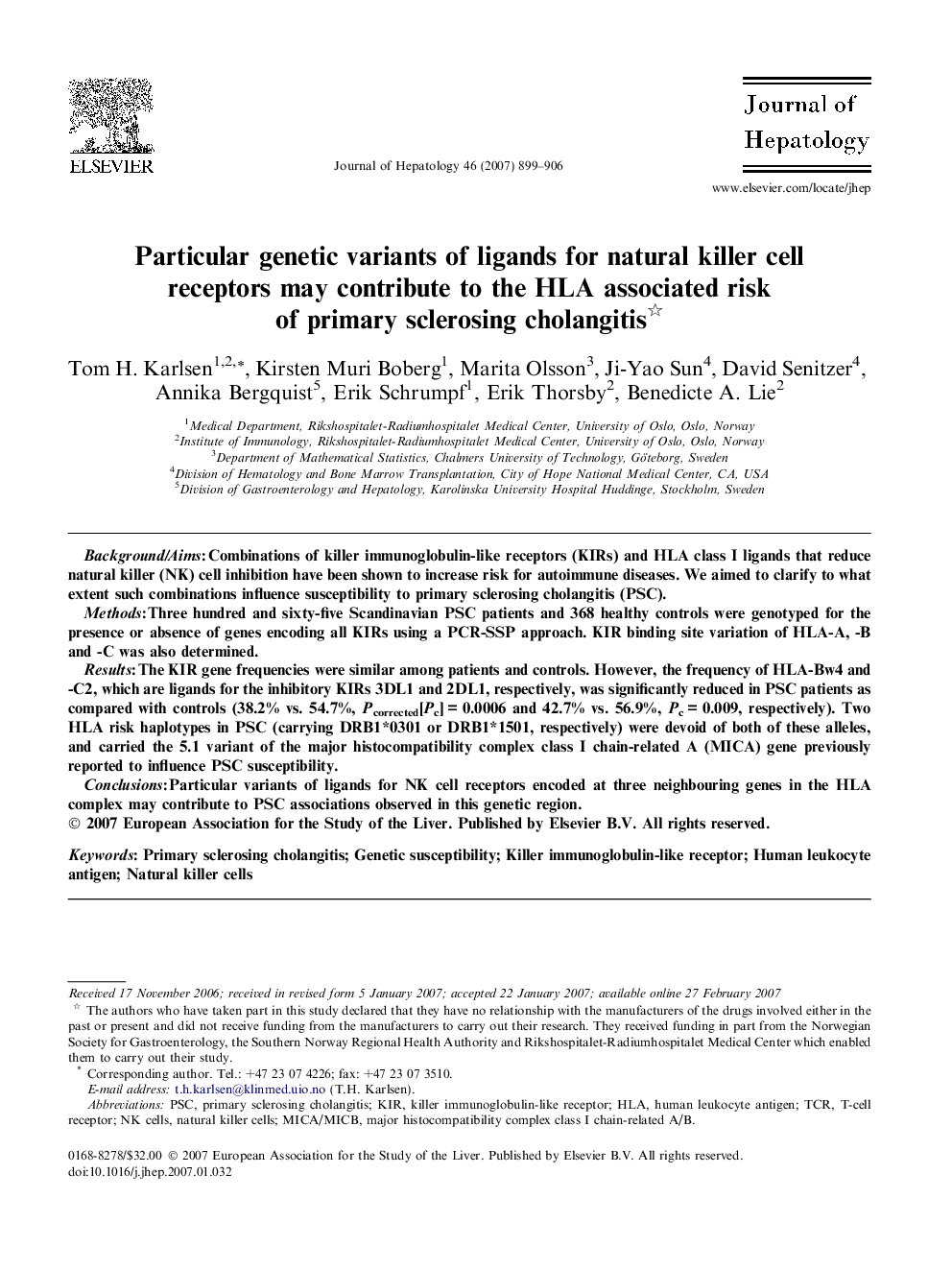| Article ID | Journal | Published Year | Pages | File Type |
|---|---|---|---|---|
| 3315526 | Journal of Hepatology | 2007 | 8 Pages |
Background/AimsCombinations of killer immunoglobulin-like receptors (KIRs) and HLA class I ligands that reduce natural killer (NK) cell inhibition have been shown to increase risk for autoimmune diseases. We aimed to clarify to what extent such combinations influence susceptibility to primary sclerosing cholangitis (PSC).MethodsThree hundred and sixty-five Scandinavian PSC patients and 368 healthy controls were genotyped for the presence or absence of genes encoding all KIRs using a PCR-SSP approach. KIR binding site variation of HLA-A, -B and -C was also determined.ResultsThe KIR gene frequencies were similar among patients and controls. However, the frequency of HLA-Bw4 and -C2, which are ligands for the inhibitory KIRs 3DL1 and 2DL1, respectively, was significantly reduced in PSC patients as compared with controls (38.2% vs. 54.7%, Pcorrected[Pc] = 0.0006 and 42.7% vs. 56.9%, Pc = 0.009, respectively). Two HLA risk haplotypes in PSC (carrying DRB1*0301 or DRB1*1501, respectively) were devoid of both of these alleles, and carried the 5.1 variant of the major histocompatibility complex class I chain-related A (MICA) gene previously reported to influence PSC susceptibility.ConclusionsParticular variants of ligands for NK cell receptors encoded at three neighbouring genes in the HLA complex may contribute to PSC associations observed in this genetic region.
